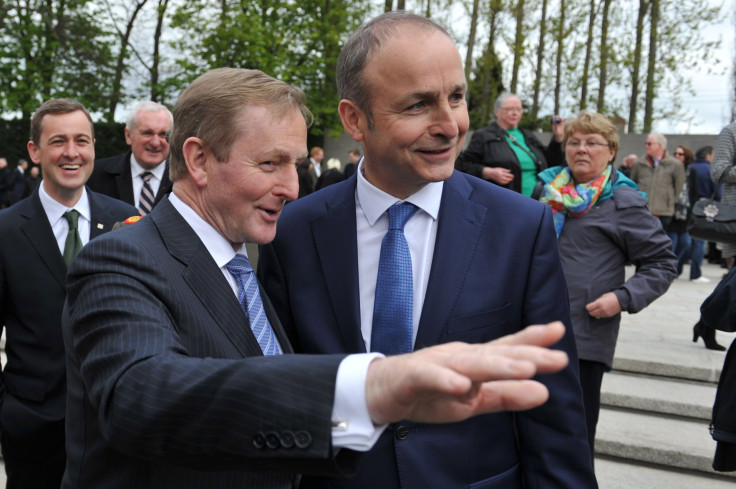Enda Kenny Likely To Be Elected Ireland’s Prime Minister During Parliament Meeting Friday

Over two months after Ireland’s Fine Gael emerged as the single-largest party in the country’s general elections, its leader Enda Kenny is set to be elected the prime minister — also known as the taoiseach. The country’s parliament, or the Dáil, is expected to elect Kenny as the taoiseach when it meets days after Fianna Fáil — the biggest opposition party — announced it had reached a “confidence-and-supply” arrangement for a Fine Gael-led government.
Until now, Fianna Fáil and Fine Gael — both centrist parties — have never shared power.
The agreement between the two parties, whose rivalry dates back to the Irish Civil War in the 1920s, includes provisions that would allow Kenny to form minority Fine Gael-led government. In exchange, Fianna Fáil, which won 44 seats in the 158-seat Dáil in February’s elections, will exercise a substantial influence over government policy but would not vote down the government in confidence motions or on money bills.
Additionally, independent members of the parliament will also be included as ministers in the new government, according to media reports.
“The new political reality following the election of the 32nd Dáil is difficult for all political parties, including my own, but ending civil war politics is the best thing for our country now,” Kenny said in a statement released last month. “I proposed that, in the national interest, we create a full Partnership Government between Fine Gael, Independent TDs and Fianna Fáil. Our proposal is to create a Government based on parity of esteem, consensus building, mutual respect and collective decision making.”
In the country’s previous election, held in 2011, Fianna Fáil — whose real estate and economic policies, implemented between 1997 and 2011, were widely blamed for the severe impact the 2007-2009 financial crisis had on Ireland — lost 51 of its 71 parliamentary seats. The 2011 elections brought to power a coalition government made up of the Fine Gael and the Irish Labour Party.
In February’s election, the Fianna Fáil party won 44 seats — a comeback widely attributed to populist policies championed by its leader Micheál Martin. However, the party still fell short of Fine Gael’s 50 and the 80 seats needed for majority.
“Fianna Fáil believes that a minority government is the only credible and legitimate outcome from the current make-up of the Dáil. We understand the need for an agreement which allows such a government to function,” Martin said in a statement released in April.
© Copyright IBTimes 2025. All rights reserved.






















